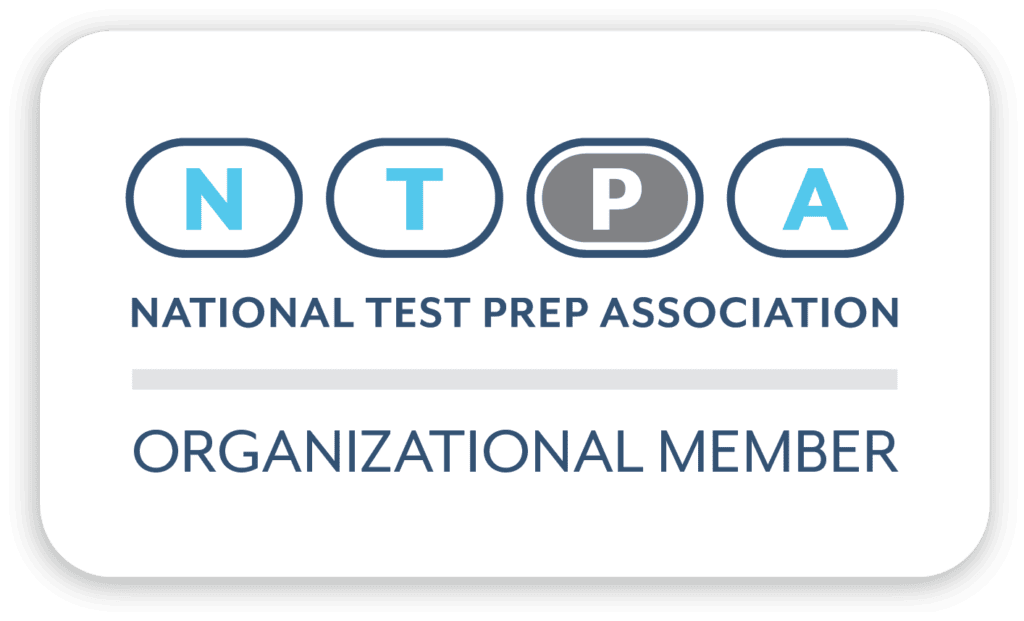When a student struggles academically or finds that learning is difficult, a neuropsychological evaluation helps to specify their cognitive strengths and weaknesses and provides extensive information about their needs. Then, recommendations from the assessment typically help the student’s family to access appropriate resources to help them be more effective and successful in the classroom and beyond. To learn more about neursopsych evaluations for students, we spoke with Dr. Kristina Pinto of Prism Therapy Collective about the benefits – and limitations – of neuropsychological evaluations.
What Is a Neuropsychological Evaluation?
A neuropsych evaluation is a series of tests and interview questions that help to assess how a person’s thinking, emotion, and behavior interact and influence their functioning. In many cases, a neuropsych evaluation leads to a diagnosis that identifies a specific condition that is affecting a person at home, school, work, and/or in their relationships. When a family has a clear diagnosis, they can then begin to effectively address the student’s condition and provide appropriate support while also ensuring that their student has access to many resources and accommodations to which they are entitled.
How long does a neuropsych evaluation take?
The actual evaluation typically lasts three to five hours, but it can take a bit longer. During this time, a licensed psychologist will conduct an interview and administer many short tests. There are breaks along the way to ensure that the student is able to engage and perform at their best. Testing is sometimes conducted over multiple appointments, usually within the same week or two.
From start to finish, the entire evaluation process usually takes a few weeks, including testing, data analysis, and a feedback appointment. At this appointment, the psychologist and the student’s family review the results together, and the family receives the full report.
Why seek out a neuropsych evaluation?
The journey to seek out a neuropsych evaluation often begins when a student has difficulties at school or has received feedback from teachers. Early signs that that a student is struggling with learning, attention, organization, or procrastination may indicate that a student would benefit from a neuropsych evaluation.
There can also be signs that don’t show up at school. Parents might notice clues that a student is experiencing anxiety, depression, or other emotional difficulty. In many cases, neuropsych evaluations can help parents understand how psychological factors may be contributing to their student’s emotions and behaviors so that parents can be better equipped to provide targeted support to their child.
In some cases, parents seek a neuropsych evaluation because they suspect that their student may have a specific condition such as ADHD, autism, or a learning disorder (such as dyslexia), and a neuropsych evaluation is the best way to pursue conclusive answers.
Neuropsychological Evaluations: First Steps
Students who attend public schools may be able to receive an independent educational evaluation (IEE) through their district as part of the Free Appropriate Public Education under section 504 of The Rehabilitation Act of 1973. Here is a link to an overview of the laws and regulations in Massachusetts. To pursue an IEE through your student’s school, the first step is to contact their guidance counselor, who will be able to direct you to the appropriate resources.
Some families may prefer to pursue an independent neuropsych evaluation because they want a second opinion, their student’s district has denied an evaluation, or they wish to have the evaluation conducted by a psychologist of their choosing.
Dr. Pinto explains that when families inquire about a neuropsych evaluation for their student, she schedules a brief call to learn about the student and understand the impetus for an evaluation so that she can help determine if this is the right next step for the student.
After this introductory conversation, Dr. Pinto will send the family a history form to fill out. This form, often completed with input from the student, helps tailor the assessment to their specific needs.
Neuropsychological Evaluations: The Testing Process
The tests conducted during a neuropsych evaluation are tailored to address the student’s specific needs. The word ‘test’ can sometimes create anxiety, but these assessments are quite different from what students might encounter in a typical school setting and can even feel like games.
Each test assesses various aspects of a student’s cognitive function—verbal skills, visual-spatial abilities, attention, learning, memory, processing speed, and more. The tests are designed to be short, and they typically take just a few minutes each. Throughout the session, a student might take 12 to 15 of these tests. The assessments start simple, but they gradually ramp up in difficulty. This helps the psychologist administering the test to assess a student’s cognitive functions effectively.
Does Testing Take Age and Development into Account?
When analyzing the data from tests, Dr. Pinto approaches the information from two angles:
First, it’s important to compare a student’s test performance to their performance on other assessments. Some of the tests are designed to assess the student’s baseline intellectual abilities, and it’s critical to understand students’ test results in relation to this baseline.
Second, she will compare a student’s test results to those of peers of similar age, grade, gender, and sometimes ethnicity. This process provides a more nuanced perspective by considering the student in context with others who share similar backgrounds and circumstances.
Neuropsychological Evaluations: The Report
Families typically receive the comprehensive report two to three weeks following their student’s evaluation. Shortly after, the family will meet for an important conversation with the psychologist who administered the assessment. In this feedback appointment, the psychologist will help the family understand the report by highlighting the student’s strengths, identifying their areas of difficulty, and discussing any relevant diagnoses. A good portion of the feedback appointment also involves discussing next steps.
The report itself is usually 10 to 20 pages and includes an appendix with scores from the student’s assessment. It also details actionable recommendations for supporting the student, including specific treatment options, school accommodations, and recommended lifestyle adjustments.
Are families required to share the results?
The decision to share the results of a neuropsychological evaluation is entirely in the hands of the student’s family. Many will share the report with their student’s school to help ensure that the student receives appropriate and informed support, which may include specific accommodations in the classroom.
Some families choose not to disclose certain details to the student’s school, and that’s perfectly fine. For example, the family may wish to share most of the report to pursue accommodations but prefer to exclude sensitive aspects of their student’s personal background information. In such cases, the psychologist who administered the evaluation may be willing to modify the original report, tailoring it to suit the family’s needs. Dr. Pinto emphasizes that this part of the process is about respecting a family’s preferences while ensuring that necessary information is communicated effectively.
Neuropsychological Evaluations: The Importance of Recommendations
In some cases, a student’s report may not come with any specific diagnosis. However, if the student is struggling, the recommendations from the neuropsychological report provide critical guidance that families should carefully consider.
The recommendations in the student’s report offer a pathway forward tailored to address the specific challenges the student is experiencing. Whether the student is encountering academic obstacles, managing attention difficulties, or experiencing anxiety, there are many helpful strategies that can make a significant difference, and your student’s report will provide actionable steps to help them navigate the complex challenges of school and life.
Neuropsych Evaluations and Medication
It is essential to understand that a neuropsychologist is different from a medical doctor and that most neuropsychologists do not have the authority to prescribe medications. However, many neuropsych professionals are able to provide information and recommendations regarding potential medications and encourage families to discuss their options with their primary care physician or psychiatrist. If your student’s report indicates that medication may be helpful to them, the neuropsychologist who administered the evaluation will discuss this with you during your follow-up appointment.
Neuropsychological Evaluations and Standardized Testing
Many students with a diagnosed learning difference receive accommodations on standardized tests such as the SAT and ACT. These accommodations may include extended time, additional breaks, and small group testing. Students must have documentation supporting their accommodations for testing, so it is important that they have had a neuropsych evaluation well before any planned tests. During the evaluation, neuropsychologists utilize tests that align with the requirements of standardized test publishers or boards.
Once the evaluation is complete, families can submit the report along with their application for accommodations on standardized tests. In many cases, this is done in collaboration with a school’s guidance department. Students who have an Individualized Education Program (IEP) or 504 plan are most likely to have their request for accommodations approved. If a request for accommodation is denied, the family may appeal the decision, typically by providing additional documentation, which may include information from a neuropsych evaluation.
Neuropsychological Evaluations and College Accommodations
It is important to consider the support systems that will be available to students when they go off to college. A recent neuropsychological evaluation helps to ensure that the student has up-to-date documentation to facilitate access to the resources that they need. Typically, testing conducted during a student’s high school years is sufficient for qualifying for accommodations in college. With the right timing, accommodations should seamlessly accompany a student into their college environment.
The transition to college can be challenging, and students and families should be proactive about coordinating with their college’s office of disability services to understand their options and secure necessary accommodations.
Key Takeaways
Neuropsychological evaluations play a vital role in understanding how students think and what strategies will best support their learning and promote healthy growth and development. While the prospect of a neuropsych evaluation can be intimidating to students and families, it provides immensely valuable information that empowers families to make informed decisions that are aligned with their students’ best interests.
To learn more about neuropsychological evaluations or to schedule an initial conversation, you can reach Dr. Pinto through the Prism Therapy Collective.






